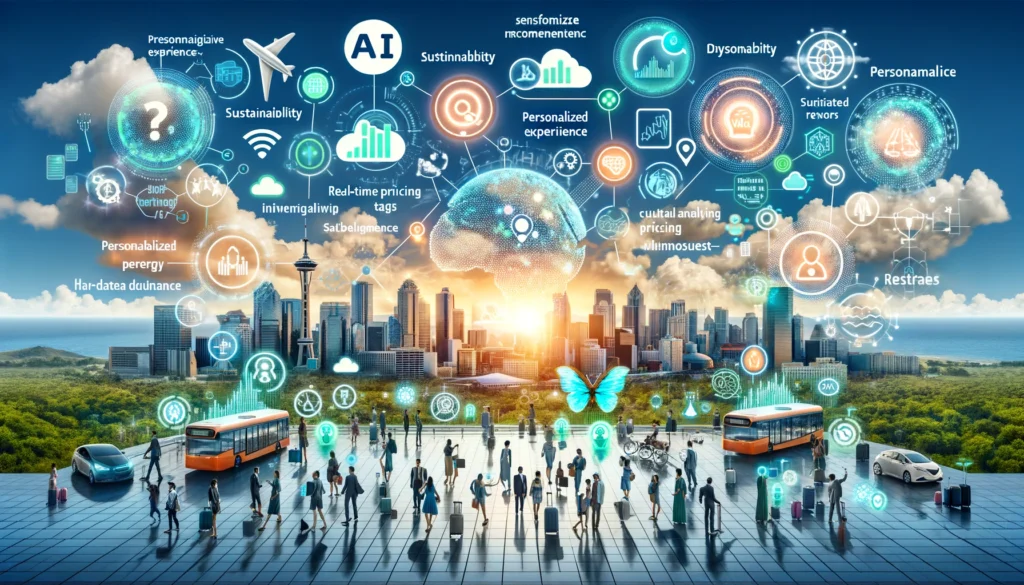
Artificial intelligence (AI) has revolutionized many sectors, and tourism is no exception. In Latin America, more and more tourism companies are using AI to improve their processes and services. In this article, we will explore the advantages of AI in the tourism sector and some companies that are using this technology.
In the current digital age, artificial intelligence (AI) is having a profound impact on various industries, and tourism is no exception. Thanks to its ability to analyze large amounts of data and offer personalized solutions, AI is reshaping the traveler experience and improving operational efficiency in the tourism sector.
AI facilitates the collection and analysis of data on travelers’ preferences and behaviors, allowing tourism companies to offer personalized experiences. From destination recommendations to activity suggestions, including customer service, which is also supported with AI-powered chatbots, providing instant responses and increasing customer satisfaction.
Optimization and revenue management
Advanced AI algorithms play a crucial role in price optimization and revenue management. They constantly analyze fluctuations in demand, special events and other factors to dynamically adjust prices for tourism services, maximizing revenue for suppliers and ensuring more personalized and competitive offers for travelers.
Operational efficiency is another aspect in which its use significantly reduces costs. From route planning and logistics to booking management and resource allocation, AI drives efficiency, ensuring a more impactful travel experience for tourists.
In the field of safety and navigation, AI-based systems offer tourists real-time information on traffic conditions, local events and safety recommendations. Additionally, facial and biometric recognition technology improves security at airports and hotels, streamlining the check-in process and providing a safer environment.
Immersive experiences
AI also powers immersive experiences through the use of augmented reality (AR) and virtual reality (VR). Travelers can explore destinations before arriving, virtually visiting hotels and attractions, adding excitement to trip planning and aiding in informed decision making.
The integration of artificial intelligence in the tourism sector not only improves operational efficiency, but redefines the way travelers experience the world. From service personalization to price optimization, AI is driving a positive revolution in the tourism industry, preparing it for a future where technology and hospitality converge in innovative ways.

– Advertisement –



